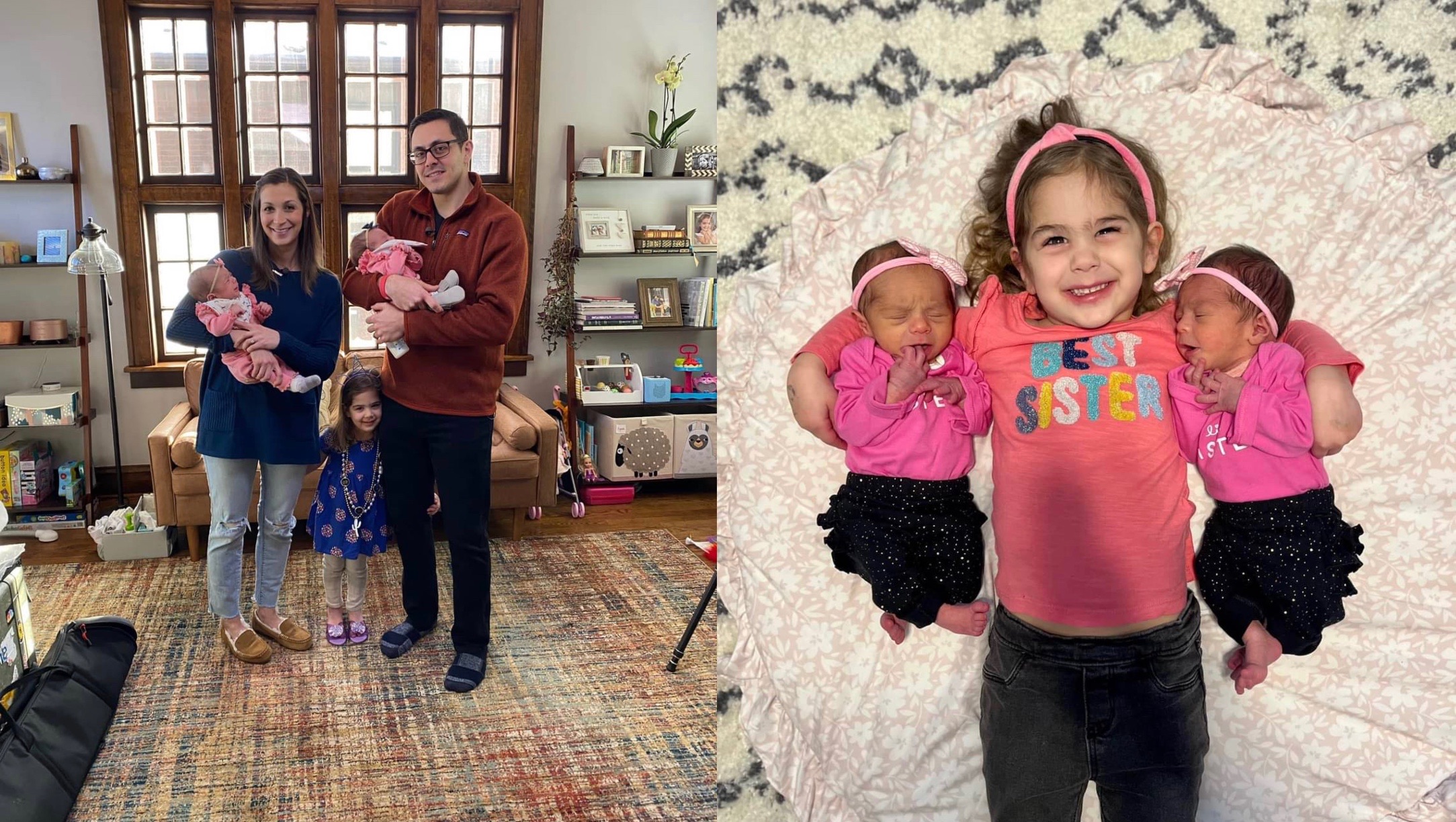
Finding a lump in your breast is a life-changing experience. Mom of three Shelly Battista found one when she was nursing her daughter Emilia three years ago. She told NBC 5, “I originally thought it was just a clogged milk duct.” According to People, the Illinois mom would go on to be diagnosed with triple-negative breast cancer and the BRCA1 gene mutation.
The American Cancer Society states that between 10 and 15% of all breast cancers are TNBC. A lack of estrogen or progesterone and a lack or excess of the HER2 protein characterize this cancer. It usually occurs in women under 40 who are Black or have the BRCA1 gene mutation. TNBC has a more rapid growth and spread than other types of breast cancer, as well as fewer treatments to address it, and greater potential for a worse outcome.
More from CafeMom: I Got Breast Cancer Young, With No Family History — Here’s My Story
Chemotherapy saves lives, but it can also diminish fertility.
Shelly went on to have a double mastectomy and chemotherapy. But the treatment came at a cost. Dr. Kara Goldman, medical director of Fertility Preservation at Northwestern Medicine who treated Shelly, told NBC 5, “Chemotherapy saves lives, but it also takes fertility.” On December 9, 2020, Shelly was declared free from cancer.
But Shelly developed ovarian insufficiency due to the chemotherapy. The American Congress of Obstetricians and Gynecologists defines primary ovarian insufficiency as “the depletion or dysfunction of ovarian follicles with cessation of menses before age 40.” In an effort to dodge ovarian cancer, Shelly had her ovaries removed.
More from CafeMom: Mom Who Beat Cancer While Pregnant Celebrates ‘Miracle Baby’ Who Survived Chemo
Shelly and her husband wanted more children.
But Shelly and her husband Robert’s dream of expanding their family wouldn’t be denied. Prior to her cancer treatments, Shelly froze eight embryos with Northwestern Medicine's Center for Fertility and Reproductive Medicine. In December 2021, Shelly was cleared to try to get pregnant. They started the IVF process to prepare her body to carry a baby.
According to People, the first two rounds didn’t succeed, but the third was the charm. The impending arrival of twin girls was confirmed by ultrasound. “I think our jaws kind of dropped open, but I mean, seriously, such a blessing too,” Shelly told NBC 5.
Shelly had to advocate for herself.
On December 9, 2022, twins Nina and Margot entered the world on the same day Shelly was declared cancer-free just two years earlier. They join 3-year-old Emilia to complete the family Shelly and Rob always wanted.
That family was made possible by her expressing her needs up front and because Illinois is one of 12 states that mandate fertility care. Shelly’s insurance covered fertility preservation, as well as embryo transfers, Goldman shared with NBC 5.
“I think it's just so important for patients to know that this is an option, this is a very real option, and it works,” Shelly said, stressing the importance of self-advocacy, “not only for our health, but also that you know, our future.”



